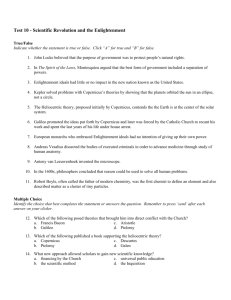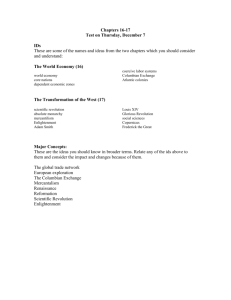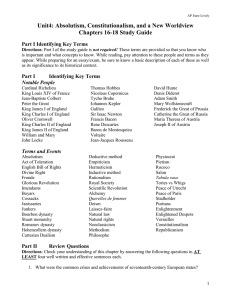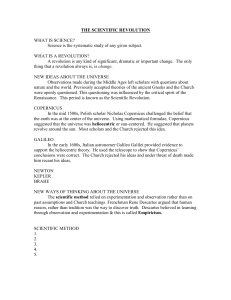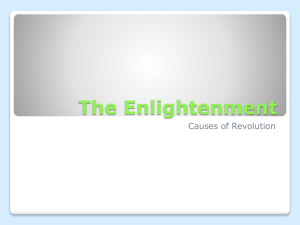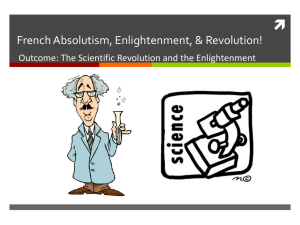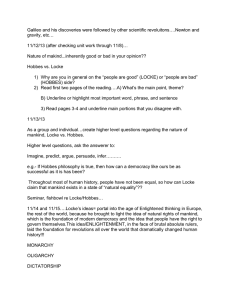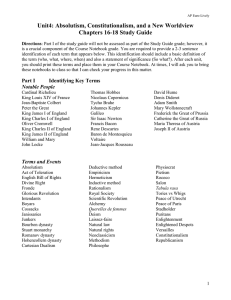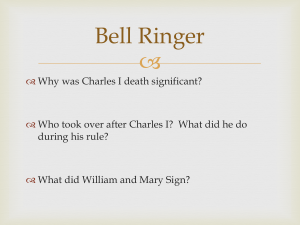Chapter 1-4 Study Guide - AP EURO
advertisement
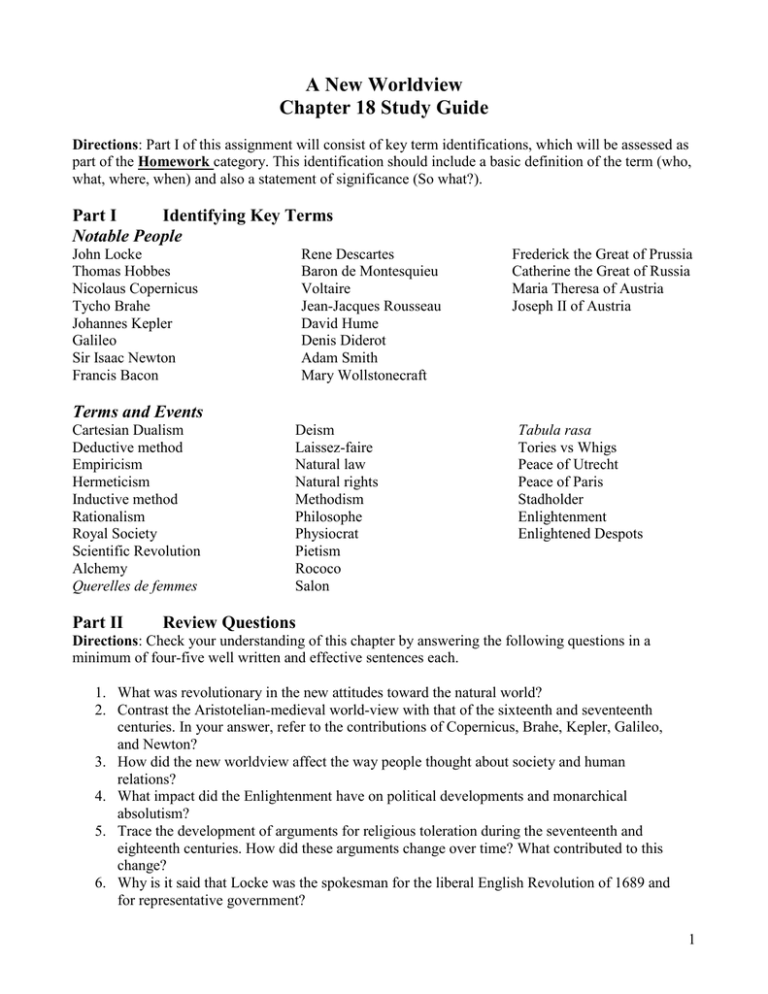
A New Worldview Chapter 18 Study Guide Directions: Part I of this assignment will consist of key term identifications, which will be assessed as part of the Homework category. This identification should include a basic definition of the term (who, what, where, when) and also a statement of significance (So what?). Part I Identifying Key Terms Notable People John Locke Thomas Hobbes Nicolaus Copernicus Tycho Brahe Johannes Kepler Galileo Sir Isaac Newton Francis Bacon Rene Descartes Baron de Montesquieu Voltaire Jean-Jacques Rousseau David Hume Denis Diderot Adam Smith Mary Wollstonecraft Frederick the Great of Prussia Catherine the Great of Russia Maria Theresa of Austria Joseph II of Austria Terms and Events Cartesian Dualism Deductive method Empiricism Hermeticism Inductive method Rationalism Royal Society Scientific Revolution Alchemy Querelles de femmes Part II Deism Laissez-faire Natural law Natural rights Methodism Philosophe Physiocrat Pietism Rococo Salon Tabula rasa Tories vs Whigs Peace of Utrecht Peace of Paris Stadholder Enlightenment Enlightened Despots Review Questions Directions: Check your understanding of this chapter by answering the following questions in a minimum of four-five well written and effective sentences each. 1. What was revolutionary in the new attitudes toward the natural world? 2. Contrast the Aristotelian-medieval world-view with that of the sixteenth and seventeenth centuries. In your answer, refer to the contributions of Copernicus, Brahe, Kepler, Galileo, and Newton? 3. How did the new worldview affect the way people thought about society and human relations? 4. What impact did the Enlightenment have on political developments and monarchical absolutism? 5. Trace the development of arguments for religious toleration during the seventeenth and eighteenth centuries. How did these arguments change over time? What contributed to this change? 6. Why is it said that Locke was the spokesman for the liberal English Revolution of 1689 and for representative government? 1 7. Compare and contrast John Locke’s theory of the social contract and Thomas Hobbes’ theory of the social contract. Describe how one of these figures influenced the work of JeanJacques Rousseau. 8. How did the new scientific theory and discoveries alter the concept of God and religion? Did science, in fact, come to dictate humanity’s concept of God? 9. To what extent did the Enlightenment express optimistic ideas in eighteenth-century Europe? Illustrate your answer with reference to at least 3 specific individuals and their works. 10. To what extent were women affected by the Scientific Revolution and the Enlightenment? Part III Chronological Awareness Directions: Place the following events in the correct chronological order. Provide the year of each event. Since the events are given to you in a sequence that is out of chronological order, please reorder the events correctly. In the event that one or more of the events listed below do not have a single year in which it took place, provide the appropriate date ranges. Rewrite this list in the correct chronological order, providing the year of the event, occurrence, or trend. 1. King Louis XIV of France revokes the Edict of Nantes 2. King Charles I of England is executed 3. Glorious Revolution 4. Publication of Diderot’s Encyclopedia 5. Peace of Paris 6. Galileo appears before the Roman Inquisition 7. Frederick II ascends the throne of Prussia 8. Copernicus publishes On the Revolutions of the Heavenly Spheres 9. Peace of Utrecht 10. Thomas Hobbes publishes Leviathan 2
